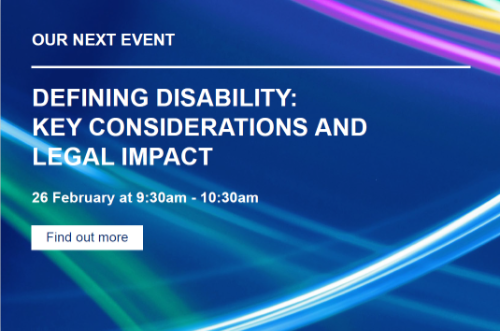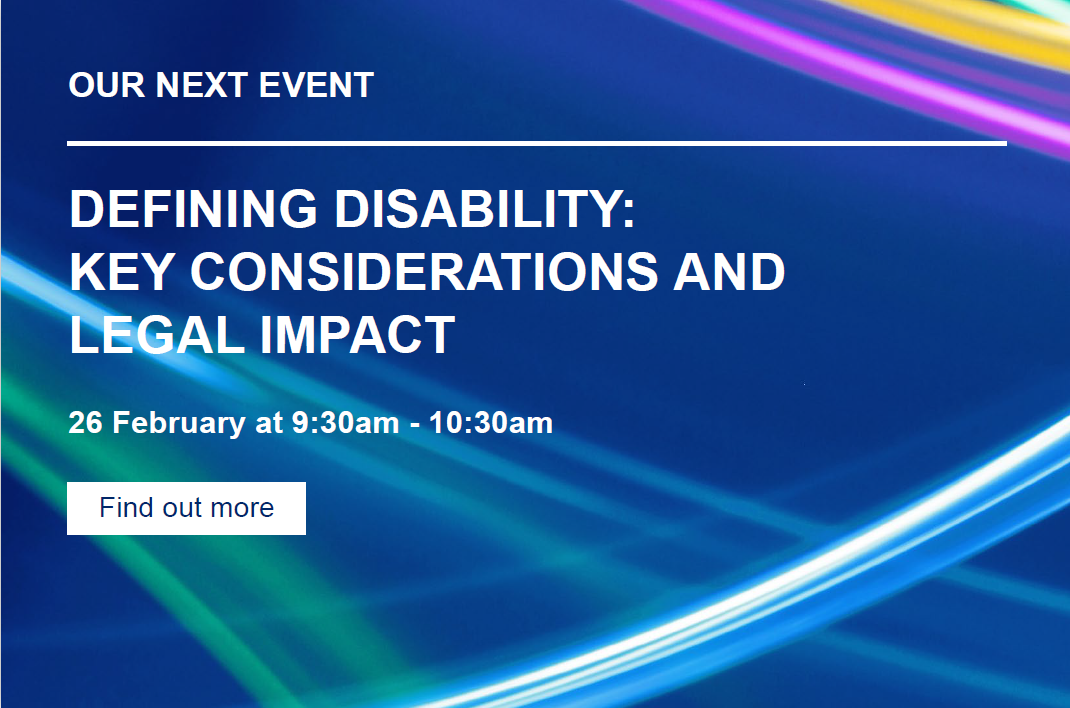The Role of Standard Form Construction Contracts in Achieving Green Goals
Rachel Murray-Smith and James Goldthorpe consider the environmental impact of construction on the road to Net-Zero.![]()
- Details
The environmental impact of construction is an enormous challenge on the road to Net Zero: indeed, the Built Environment contributes around 40% of Greenhouse Gas Emissions worldwide.
The traditional view of many in the construction industry has been that environmental considerations are an issue best addressed in the scope or specification of a construction contract, rather than in contractual clauses.
However, as the imperative to decarbonise this emission-intensive sector gathers pace, publishers and users of standard form construction contracts have been exploring ways to support carbon reduction via contractual clauses and conditions.
As we are highlighting this month with our ‘SP Green Goals’ initiative, avoiding climate catastrophe is a collective responsibility which demands innovation. In this article, we consider how the standard form construction contracts published by the Joint Contracts Tribunal (“JCT”) and the New Engineering Contract (“NEC”) can be utilised as part of these efforts.
NEC – Secondary Option X29
Published in consultation form this April, the X29 secondary Option for the NEC4 Suite has been a hotly anticipated contribution to the recent debate around climate change clauses.
Hoping to facilitate “tangible sustainability and net-zero commitments between clients and suppliers”, secondary Option X29 works by allowing clients (the procurer of the works or service) to include specific ‘Climate Change Requirements’ within the contract’s scope alongside a ‘Climate Change Execution Plan’ for their delivery.
The inclusion of Climate Change Requirements within the scope means that a failure to comply will be considered a defect requiring correction at cost. As an option to create an additional layer of accountability, Option X29 also provides for a Performance Table which, when used, sets out the targets the contractor has agreed to achieve and provides a mechanism for adjusting payments up or down depending on performance against those targets.
As we noted when Secondary Option X29 was first published in consultation form, the prospect of increased accountability in this area is welcome given widespread concerns around so-called ‘greenwashing’ in the sector. It is notable that Option X29 approaches the issue of climate change with the same collaborative ethos and approach to risk-sharing which has seen the NEC4 suite receive Cabinet Office endorsement. In keeping with this Option X29 obliges the parties to collaborate with ‘Climate Change Partners’ (third parties involved in meeting the requirements) and provides that contractors must give early warnings when they become aware of issues which could adversely impact the delivery of Climate Change Requirements. Similarly, the ‘Climate Change Execution Plan’ can be re-submitted and altered throughout the lifecycle of a project with involvement from both parties and (as noted above) the Performance Table and associated risk/reward mechanism can be included, or omitted, depending on the parties preferences.
As one of the biggest challenges to achieving green goals via construction contracts is likely to be the market’s unwillingness to take on new obligations, Option X29 seeks to balance the provision of accountability with a fair, flexible approach to risk-allocation. Especially in light of the emphasis on collaboration which runs through the government’s Construction Playbook – these features of Option X29 may serve to expediate the clause’s early adoption. We will provide further commentary on the final form of the optional clause when it is published in mid-June.
JCT
The JCT’s standard form construction contracts can also be utilised as a tool for achieving green goals. From as early as 2011, the JCT has given consideration to how best to implement sustainability provisions within its contracts and has already published numerous options, including:
Clause 4.12 of the JCT Constructing Excellence Contract (both 2011 and 2016 editions) which provides that Suppliers must “give consideration to environmental and sustainability considerations where appropriate”;
Clause 16 of the JCT Framework Agreement (both 2011 and 2016 editions) which obliges Providers to “assist the employer and other Project Participants in exploring ways in which environmental performance and sustainability…might be improved and the environmental impact reduced; and
Supplemental Provision 8 across much of the 2016 suite, including the JCT Design and Build Contract, which states that ‘the Contractor is encouraged to suggest economically viable amendments to the works which…may result in an improvement in environmental performance’.
Whilst the obligations contained within these provisions may not be as comprehensive as NEC’s Option X29, a recent blogpost published on the JCT Website has highlighted how bespoke amendments such as those published by the climate action group The Chancery Lane Project (“TCLP”) can also be used with JCT contracts to embed climate change obligations within the core clauses. TCLP has published several clauses intended for use with the JCT’s standard forms in recent years, including clauses which:
Require that the Contractor’s sub-contractors and suppliers fill out self-assessment questionaries determining their ability to deliver on climate goals; and
Make the delivery of climate change requirements a condition of practical completion.
In our construction team, we have a wealth of experience drafting bespoke amendments for use with JCT Contracts and are well placed to assist parties wishing to use or develop such amendments to support green goals on their projects.
Conclusion
Given the ubiquity of standard form construction contracts across the construction industry, it is extremely encouraging to see that the users and publishers of such contracts are giving serious consideration to how the conditions of a contract can support the delivery of sustainability goals on construction projects.
Rachel Murray-Smith is a Partner and James Goldthorpe is a Paralegal at Sharpe Pritchard LLP.
For further insight and resources on local government legal issues from Sharpe Pritchard, please visit the SharpeEdge page by clicking on the banner below.
This article is for general awareness only and does not constitute legal or professional advice. The law may have changed since this page was first published. If you would like further advice and assistance in relation to any issue raised in this article, please contact us by telephone or email enquiries@sharpepritchard.co.uk
|
Click here to view our archived articles or search below.
|
|
OUR RECENT ARTICLES
Jul 03, 2025
IPA guidance 2025: Managing PFI distress and preparing for expiryAanya Gujral and David Owens dive into the recent guidance published on managing the risks associated with Private Finance Initiative (“PFI”) projects.
Jul 03, 2025
Data (Use and Access) Act – Updating Data Protection Law and moreOn the 19th June 2025, the Data Use and Access Bill (“DUA Bill”) received Royal Assent to become the Data Use and Access Act 2025 (“DUA Act”).
Jun 24, 2025
Modifying subsidies: What is permitted and what is not?Beatrice Wood and Oliver Slater explore recent developments and discuss the process of awarding subsidies.
Jun 24, 2025
Getting new PPP right: Smarter tools for smarter infrastructureNicola Sumner, Steve Gummer and Roseanne Serrelli discuss the 'dos and don'ts' of Public-private Partnerships in their new form.
Jun 19, 2025
Zones/RABs and heat networks: The path to an investible infrastructure asset class?The UK’s new heat network zoning framework (the outlines for which were drawn by the Energy Act 2023) is set to redefine how low‑carbon heating is delivered by creating geographic zones, where district heat networks are the mandated, optimal solution.
Jun 17, 2025
Partial debt guarantees- Reviving Investment in UK Water InfrastructureIs it Time for a Public Sector Major Infrastructure Debt Guarantor?
|
|
ABOUT SHARPE PRITCHARD
We are a national firm of public law specialists, serving local authorities, other public sector organisations and registered social landlords, as well as commercial clients and the third sector. Our team advises on a wide range of public law matters, spanning electoral law, procurement, construction, infrastructure, data protection and information law, planning and dispute resolution, to name a few key specialisms. All public sector organisations have a route to instruct us through the various frameworks we are appointed to. To find out more about our services, please click here.
|
|
OUR NEXT EVENT
|
|
OTHER UPCOMING EVENTS
          |



